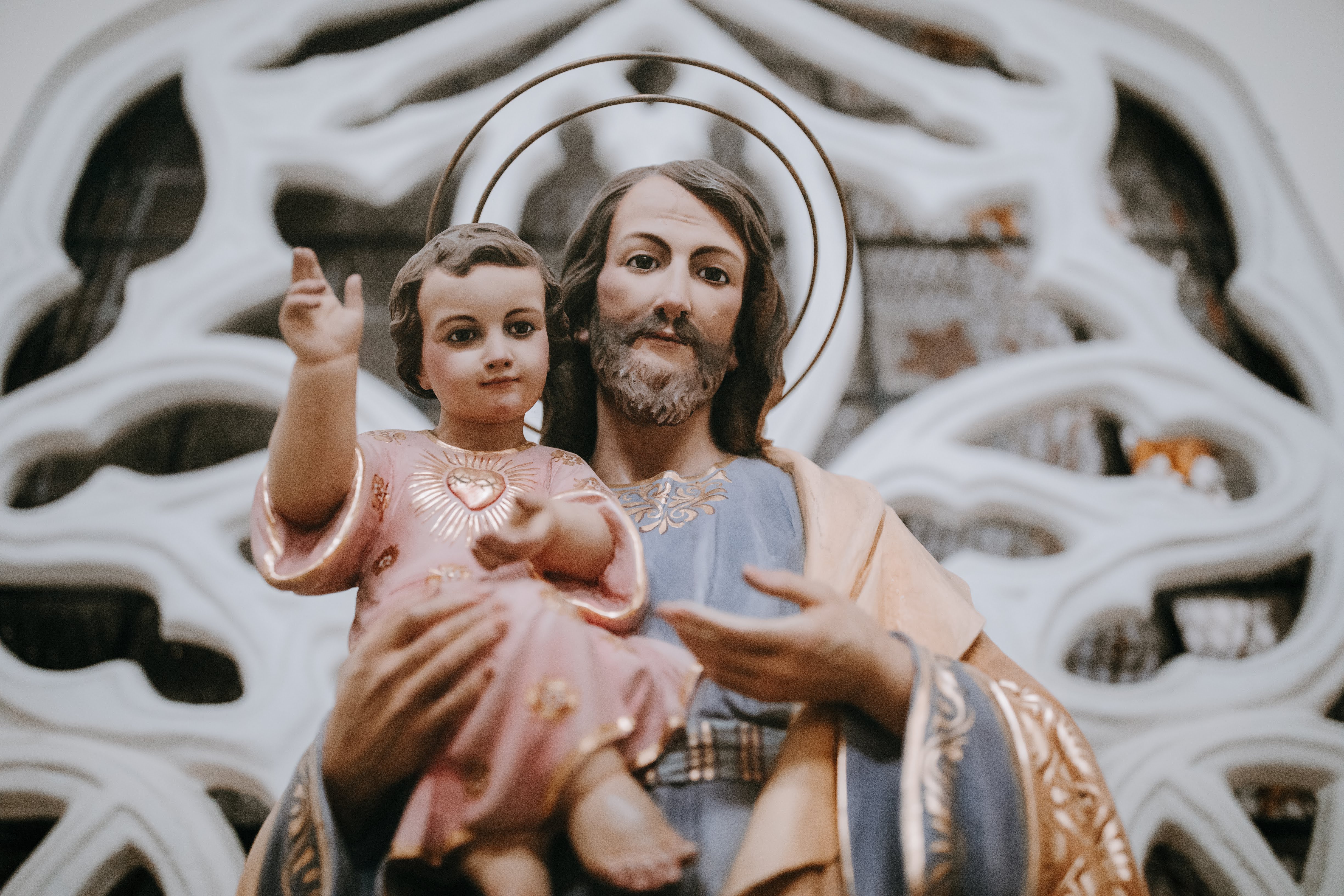One of the things we learn early on as children is that the person of self-control is to be respected more than the person of aggression.
St. Joseph, prominent in this Sunday’s Gospel, is a model for us of self-control, of the virtue of meekness.
Now, we often confuse “meekness” with “weakness,” but being meek has nothing to do with being weak. For an example of wimpiness, check out this Sunday’s first reading, in which Ahaz refuses to ask the Lord for a sign even when he is told to do so.
A meek person, rather, is a person who possesses personal power, yet chooses to keep that power under control. We describe this person as “self-possessed.” He or she exercises power only to do what is good.
Joseph possessed power, including the power to prosecute Mary. Yet, he first chooses to part ways with her quietly and mercifully. And then, when he comes to know God’s plan, he submits to that plan completely, taking Mary as his wife into his home and becoming the foster father of Jesus.
Literature, movies and television often contrast heroes and villains by depicting the villain as someone who is out of control, who uses power recklessly in order to dominate others, while the hero is self-possessed, often quiet or reserved, and chooses his or her battles wisely.
The heroes of Scripture are the same in this regard. Jesus, of course, is the greatest model of meekness. He Himself says to His disciples, “Learn from me, for I am meek and humble of heart.” The Virgin Mary is also described as being “meek and mild.” Now, Jesus had all the power of the Son of God, and Mary was God’s perfect creature, and had the power to say “yes” or “no” to God’s plan of salvation. Yet both of them exercised their power in the service of the Father’s will, and in doing so showed their true greatness.
The story of St. Joseph brings this lesson about meekness a little closer to home. St. Joseph, while very holy (“righteous,” Scripture tells us) was not perfect in the same way as Mary.
Yet Joseph possessed power, including the power to prosecute Mary. Yet, he first chooses to part ways with her quietly and mercifully. And then, when he comes to know God’s plan, he submits to that plan completely, taking Mary as his wife into his home and becoming the foster father of Jesus.
The point is that Joseph is not willful. Rather, he gives his entire life over to the will of God.
In a world that so rabidly celebrates individual self-expression, in a world where the vital importance of doing God’s will is obscured by attitudes and expressions such as, “just follow your heart,” and “you can be anything you want to be,” and has turned narcissistic extroversion into a capital virtue, we need to remember and to allow God to engrave very clearly upon our minds the Beatitude, “Blessed are the meek, for they will inherit the earth.”
If we are not meek, it will be nearly impossible to understand how the Son of God can become a little human baby at Christmas, and almost impossible to imitate Christ or those closest to Him, who like St. Joseph were glad to hand their lives over — without complaint — to the will of God.
Fr. Charles Fox is a priest of the Archdiocese of Detroit currently assigned to the theology faculty of Sacred Heart Major Seminary. He is also a weekend associate pastor at St. Therese of Lisieux Parish in Shelby Township and chaplain and a board member of St. Paul Evangelization Institute, headquartered in Warren.









